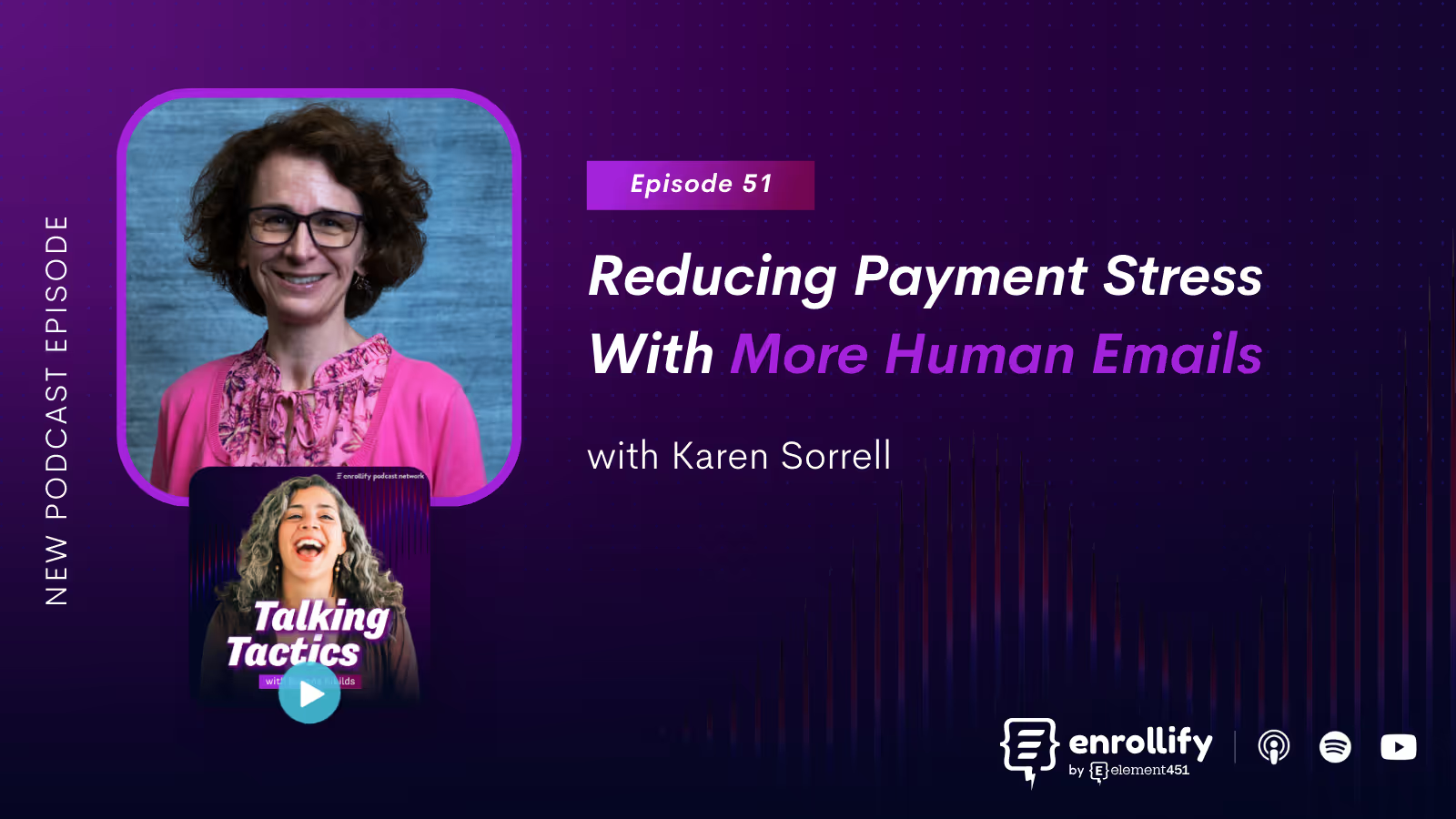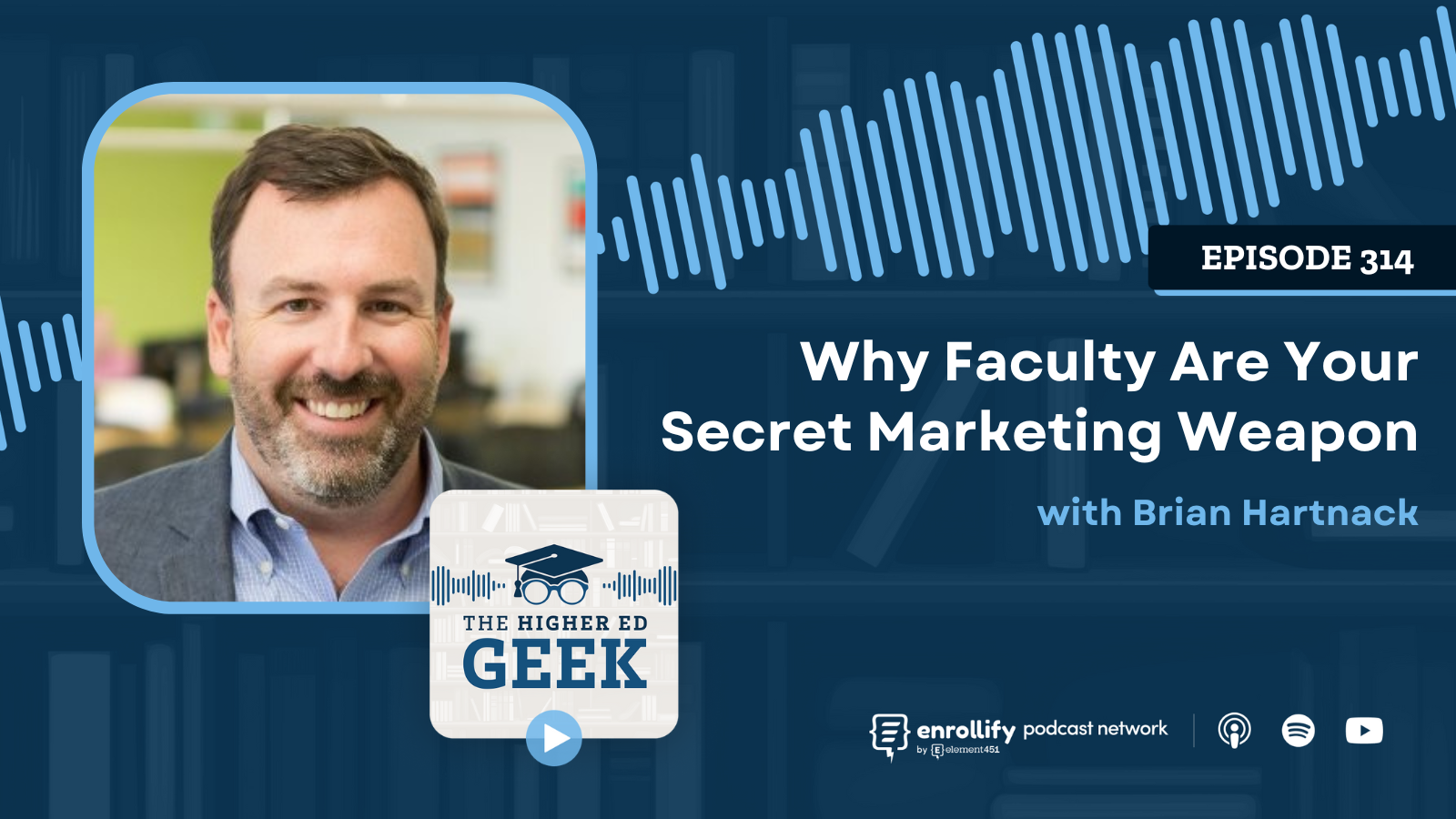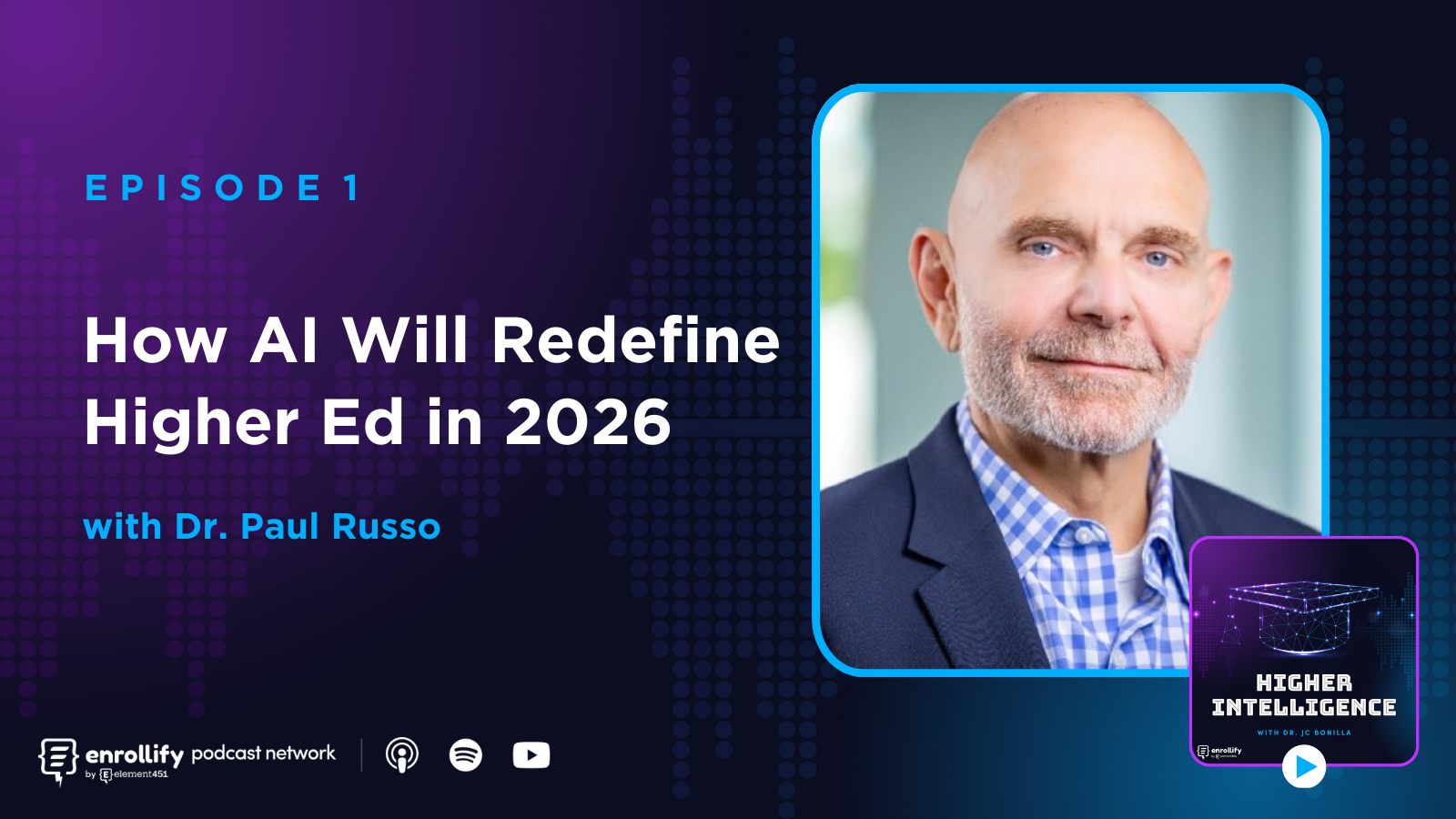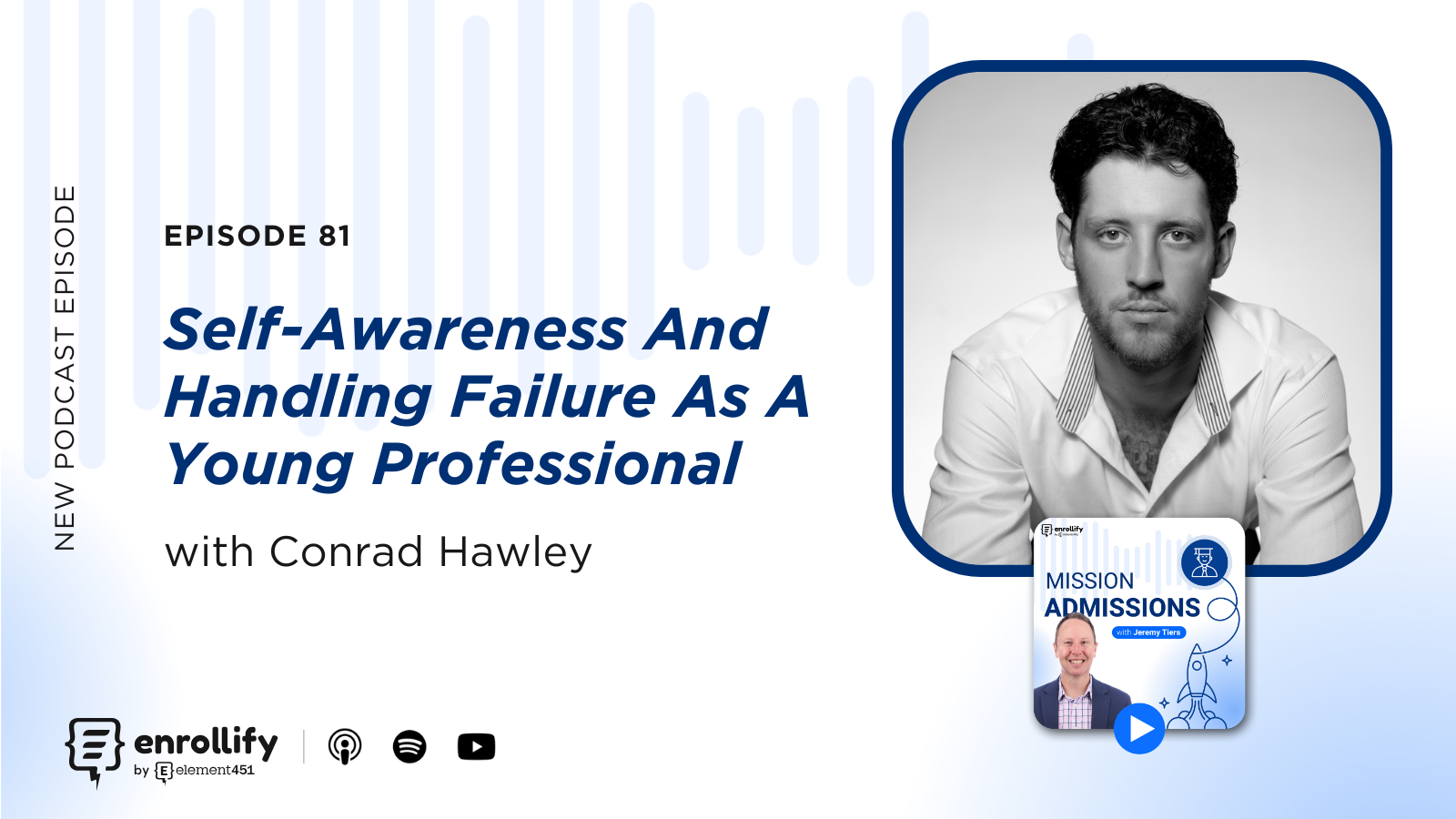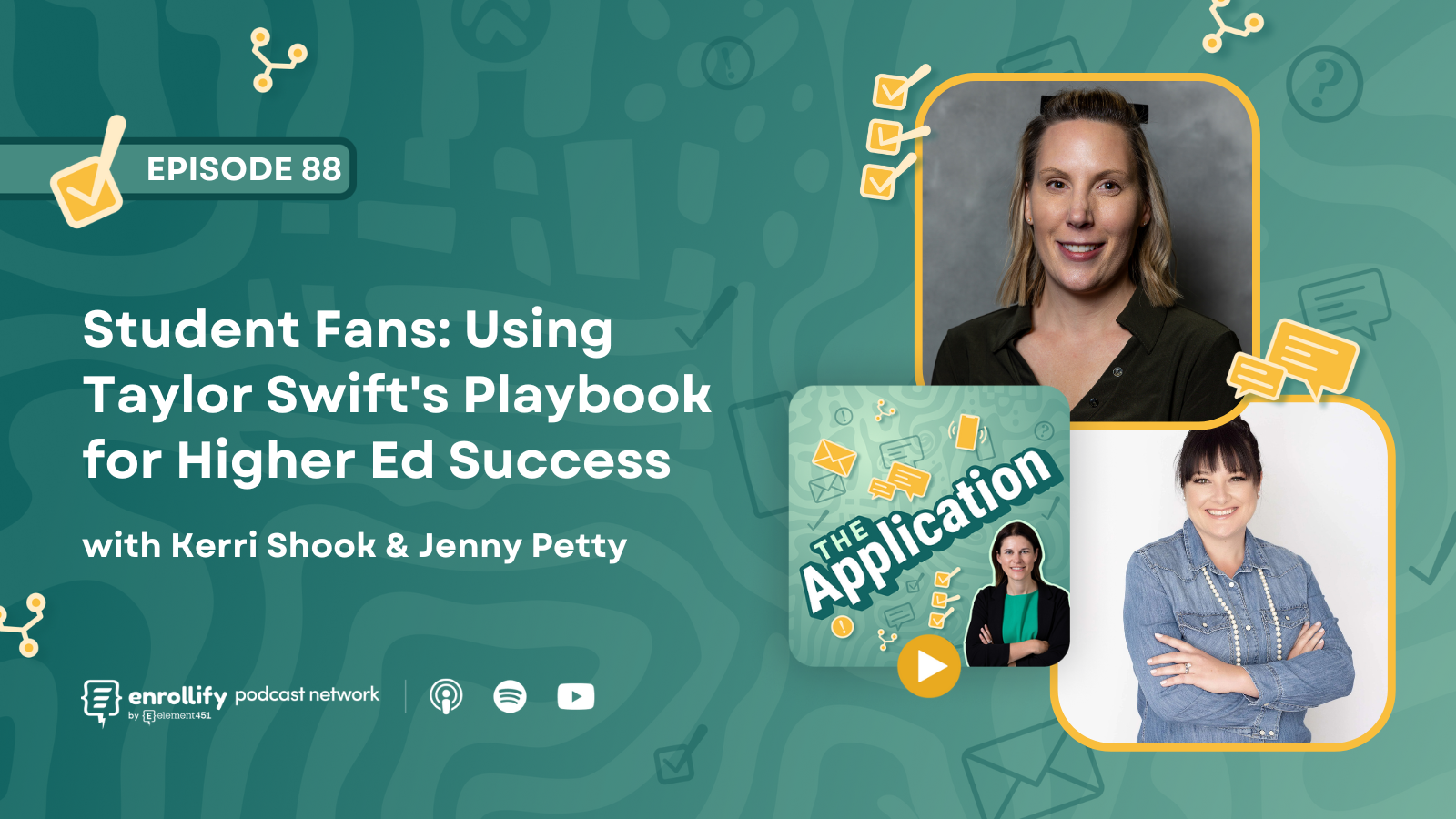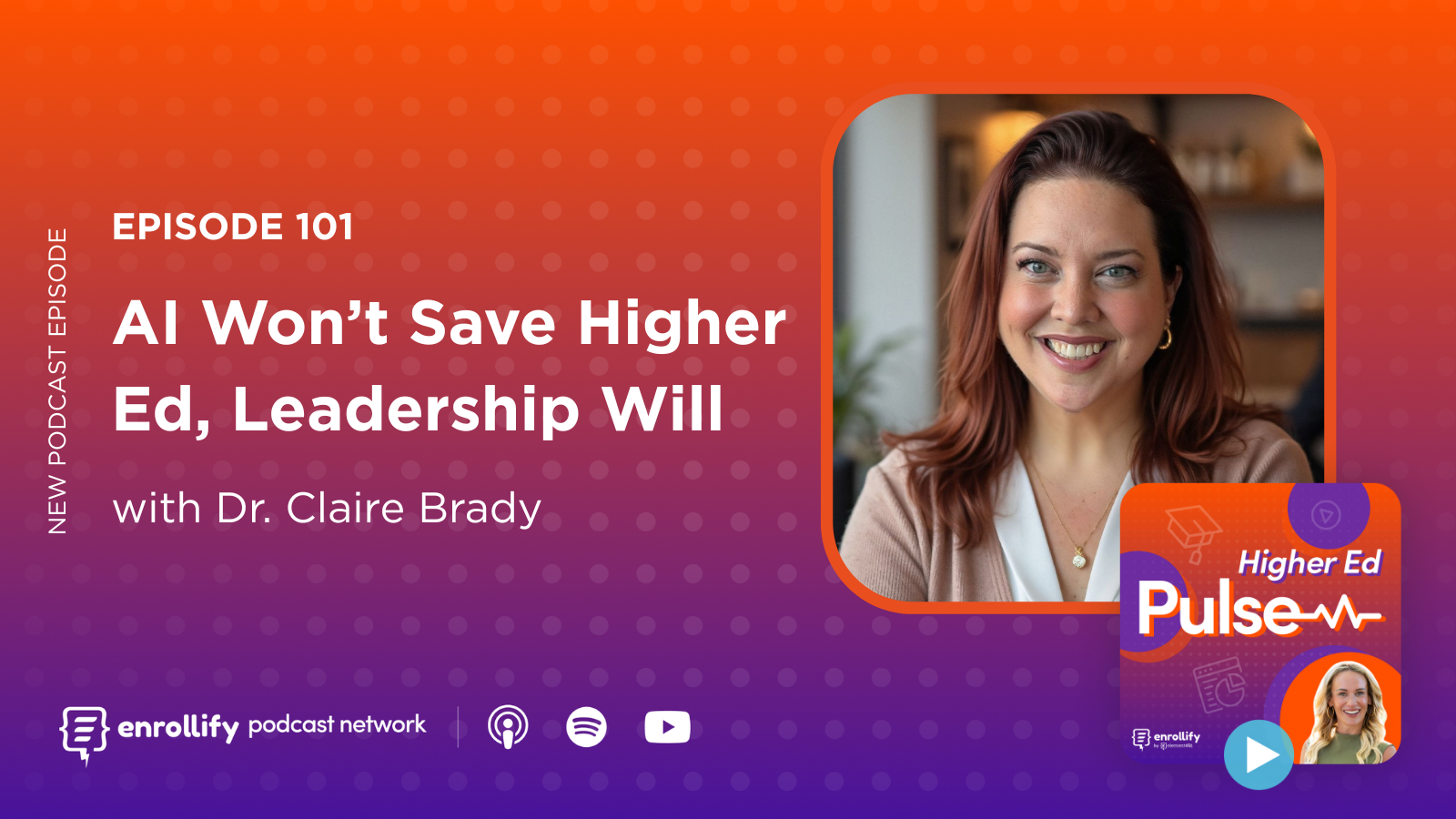About the Episode
Got a story to tell? An innovative idea to share? Fill out our guest nomination form and let's chat!
About the Episode:
What if the key to supporting students with payments isn’t a new policy, but a new tone? In this episode of Talking Tactics, host Dayana Kibilds chats with Karen Sorrell, Senior Business Operations Manager at Carroll Community College, about how one simple change—revamping payment reminder emails—led to big results. By shifting the tone from transactional to supportive, Karen’s team boosted student outreach by 16%, resolved 95% of payment issues for those who responded, and dropped outstanding payments by 11%.
If you’ve ever sent an email that looked more like a warning label than a helping hand, this conversation will inspire you to rethink how you communicate about the most stressful part of the enrollment journey: paying for college.
Why do payment communications matter in the enrollment funnel?
Payment is a make-or-break moment in a student's enrollment journey—and yet it’s often treated as an afterthought. As Karen points out, most institutions invest heavily in the front end of enrollment—awareness, admissions, orientation—but often neglect how financial stress can derail a student’s path. With outstanding balances climbing 37% year-over-year at Carroll Community College, the team knew something had to change. Karen recognized that the communication style surrounding payments needed to shift from transactional to supportive in order to keep students on track.
What was the problem with the original email strategy?
Before Karen’s intervention, students were receiving a single, dense, intimidating email packed with every possible piece of information about their outstanding balance. The message was long—taking up to ten scrolls on a mobile screen—and visually harsh, featuring red text and bold highlights. This approach overwhelmed students rather than informed them. Karen understood that many of their students were first-generation, working full-time, or supporting families—meaning they needed clarity and support, not more confusion.
How did Carroll’s new email strategy work?
Karen broke the original email down into a five-part series, each with a specific focus and a more human tone. The first email served as a friendly reminder, while follow-ups introduced payment options, deferred payment plans, and deadline warnings—but always with a tone of support, not punishment. The final email clearly stated consequences (class drops), but still offered a path forward by encouraging students to contact her directly. Importantly, emails included clickable visuals to make action-taking easy. Students received timely nudges and, when needed, support to make a plan.
What kind of results did this new approach deliver?
The shift had a tangible impact. The response rate jumped by 16%, and of the students who reached out, 95% were able to resolve their payment issues. More than just numbers, Karen received heartfelt replies from students and parents alike, thanking her for the clarity and support. In one semester, outstanding balances dropped by 11%, and every student who fell into the “at-risk” group ended up paying or making a plan—100% compliance. That’s not just an operational win; it’s a student success story.
How did this impact student retention and equity?
Perhaps most importantly, this tactic opened doors for vulnerable students—many of whom might have dropped out simply because they didn’t know help was available. Karen emphasized that financial fear often paralyzes students. By offering a compassionate tone and a clear path forward, Carroll Community College helped students not only stay enrolled but also feel seen and supported. From military-connected learners to first-gen families, the strategy proved that thoughtful communication is a powerful equity tool.
What advice does Karen have for institutions looking to replicate this?
Karen’s biggest piece of advice? Start with honest self-evaluation. Read your current communications and ask yourself: Would I feel supported reading this? Then, ask for help. Whether it’s your marketing team or a group of students willing to serve as a focus group, outside perspectives are essential. Karen reminds us that if we want students to ask for help, we must be willing to do the same as educators and administrators. Improving communications doesn’t require massive budgets—it requires empathy and collaboration.
Attend the 2025 Engage Summit!
The Engage Summit is the premier conference for forward-thinking leaders and practitioners dedicated to exploring the transformative power of AI in education.
Explore the strategies and tools to step into the next generation of student engagement, supercharged by AI. You'll leave ready to deliver the most personalized digital engagement experience every step of the way.
👉🏻 Register now to secure your spot in Charlotte, NC, on June 24-25, 2025!







